The ElRhino story: Why Nisha Bora ditched market analysis for rhino poop
“Elrhino was actually an accident,” says Nisha Bora. A retired mining engineer, Nisha’s father, Mahesh, was looking for something interesting to do. Rather arbitrarily, Mahesh read about papermakers who used elephant dung to make paper in Rajasthan, a place not known for elephants. “He thought it was such an absurd place to be doing this,” says Nisha, “so what if he did it in Assam?” Immediately, Mahesh travelled to the north to see Rajasthan’s dung papermaking for himself.
Back from Rajasthan, Mahesh began his experiments in papermaking to make it sustainable and socially driven. “Nobody believed that at his age he should be starting a venture.” Most relatives and friends assumed it was a bout of eccentricity retired men are prone to. However, Nisha decided she was going to visit her father to see how she could help him. That visit proved serendipitous for her.
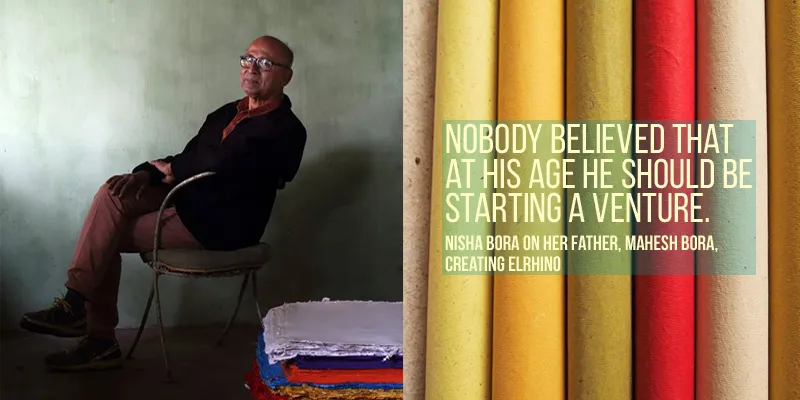
“When I saw the amazing job he had being doing, I was completely swept off my feet,” says Nisha. There were people Mahesh had already hired, and the enterprise was equipped and functional. Nisha says, “It also matched my own need to find something interesting.” Never had she believed that a visit to her hometown would reveal her true calling. After finishing her studies, Nisha was busy trying to make her mark in the corporate world. “I’m actually a qualitative market researcher,” she says. “Long time ago, I used to work for this company called Quantum. Two years after the job, I quit, and I remember my boss saying I was throwing away such a promising job.” As successful as she was climbing the corporate ladder, Nisha somehow felt this was not what she was meant to do.
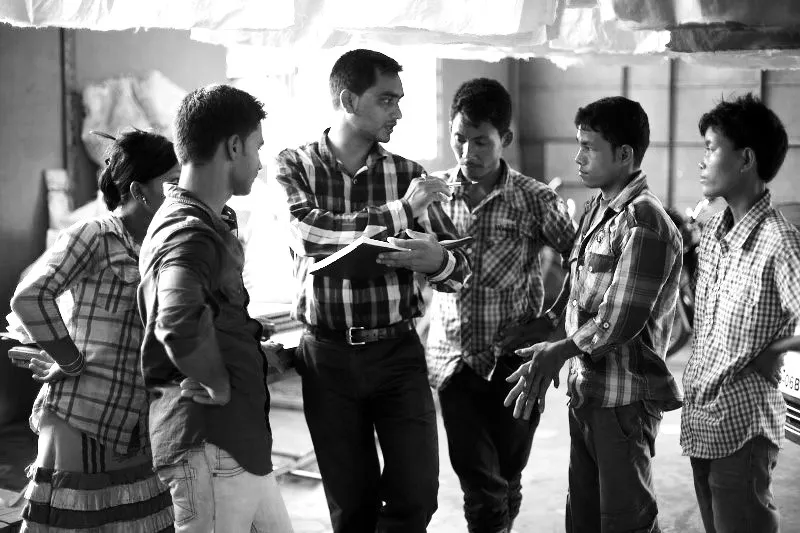
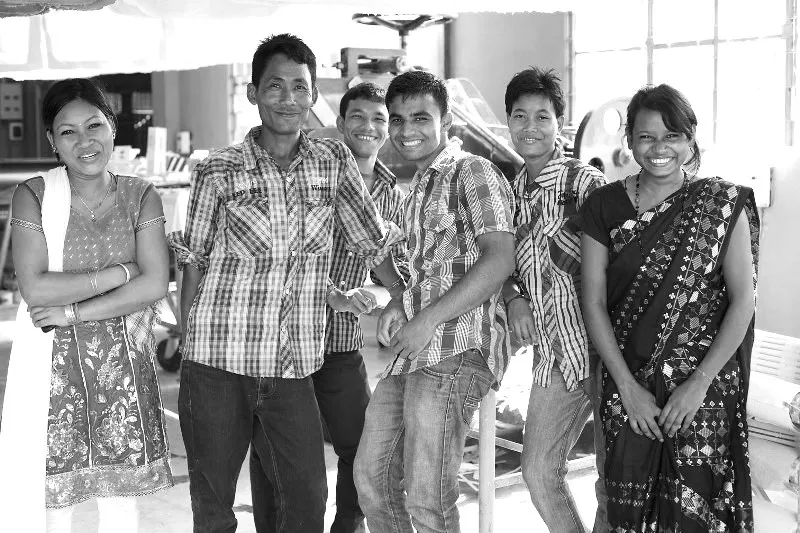
When Elrhino started the intention was not to create a brand, but to use their resources to provide a viable livelihood option and save Assam’s 2,000 one-horned rhinoceroses. Once a common fixture of Indian wildlife, one-horned rhino numbers have dwindled to 3,000, with the majority concentrated in Assam. Coming from a long line of activists and conservationists, advocating for the one-horned beast has always been a priority for the Bora family. Nisha says, “Elrhino was always supposed to be impact seeking. We were going to make paper sheets with the assumption that people would buy them. But very quickly I found that there were no buyers for paper.” It isn’t surprising either. India’s paper and pulp industry is one of the largest in the world, where only the top papermakers employ more than 900,000 persons. On the other hand, North India, especially Jaipur, dominates handmade papermaking, an industry worth INR 21 crore and run by a workforce of 10,000 strong. “When you talk about papermaking, it’s all about kilos and tonnes.” So a small unit nestled in Assam would not have survived in such an established industry. “There was no reason to make paper in the North-East,” she says. The other challenge Nisha faced was a complete lack of awareness about dung paper. “People think it doesn’t behave like normal paper. We had to demonstrate how the paper was great quality paper. Eventually, I started to make a few things that were just prototypes.” At trade fests, Nisha saw there were literally no takers for the paper, but many were interested in the demo products she’d made to show what could be done with dung paper. Even on her facebook page, the product demonstrations brought maximum customer engagement. What was supposed to be a personal page for her friends, steamrolled into a successful business for Elrhino when a fan fell in love with the dung paper products.
Nisha says,
“It was never my plan to make it consumer centric. Were just going to do quality work, sell it at institutional levels, and my jobs was to just to feed people on the ground. Today, after two years, I’ve understood the power of committed customer engagememt is. Elrhino lovers have become fans in spite of the fact that they dont even get to buy our products. So now, were planning to bring the brand to consumers through multiple touch points.”
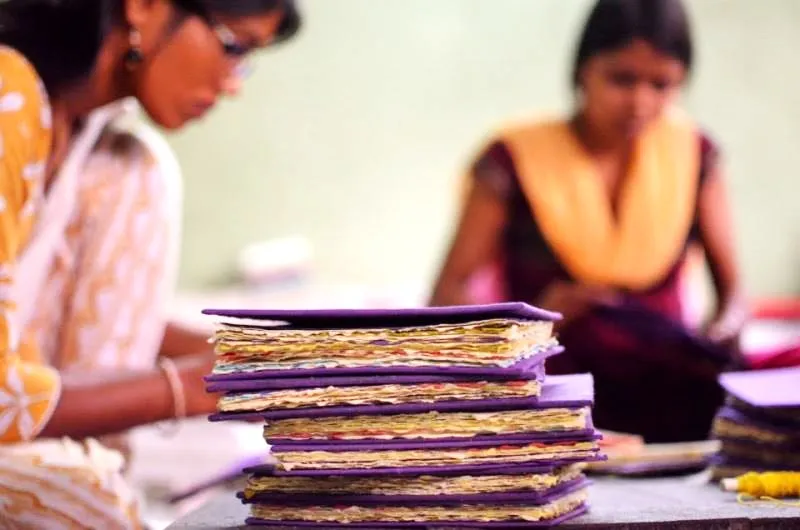
Nisha truly believes a good story sells itself, and Elrhino has a great one. Her biggest struggle was to marry a business goal to a social initiative Elrhino would bridge the gap between profit, sustainbility and the race to save Assam’s rhinos. “Elrhino’s gotten so huge that we can really think this can impact the future of the rhino with all the kind of love and attention we’re receiving.”
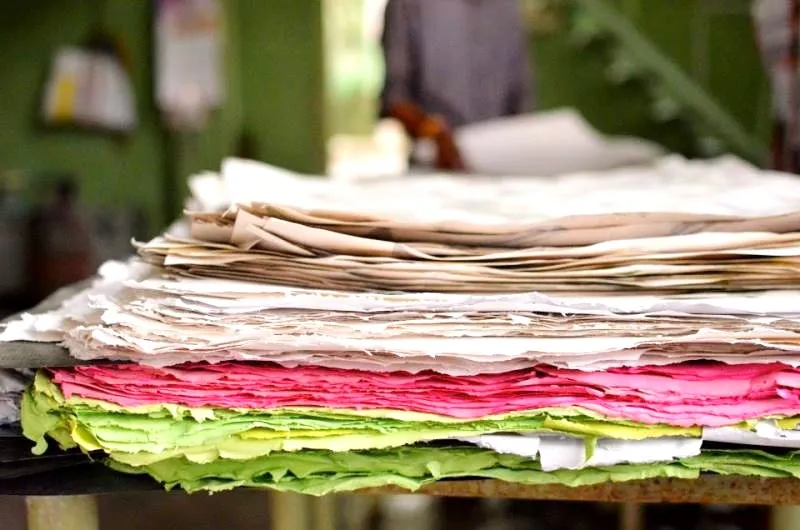
Nisha is confident that the Assam government may soon want to collaborate on such projects that are sustainable and work towards the conservation of the one-horned rhinoceros. Her family runs a private foundation that provides financial support for those who risk their lives to protect the rhino.
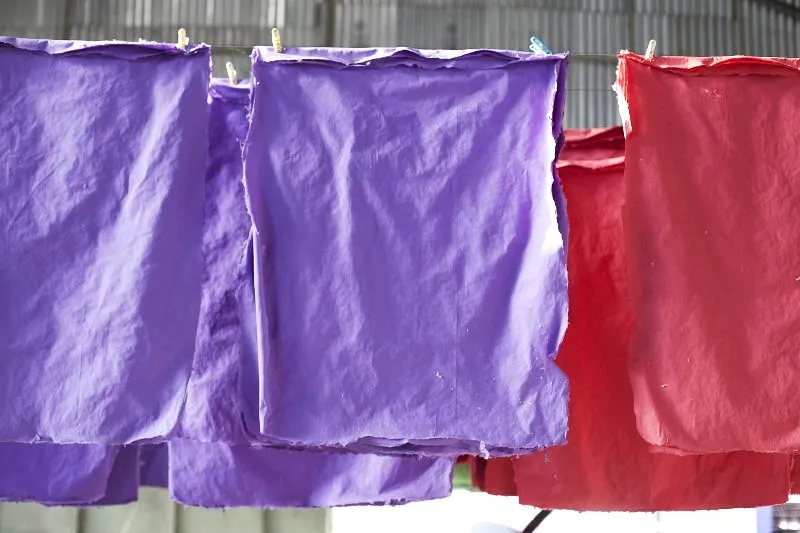
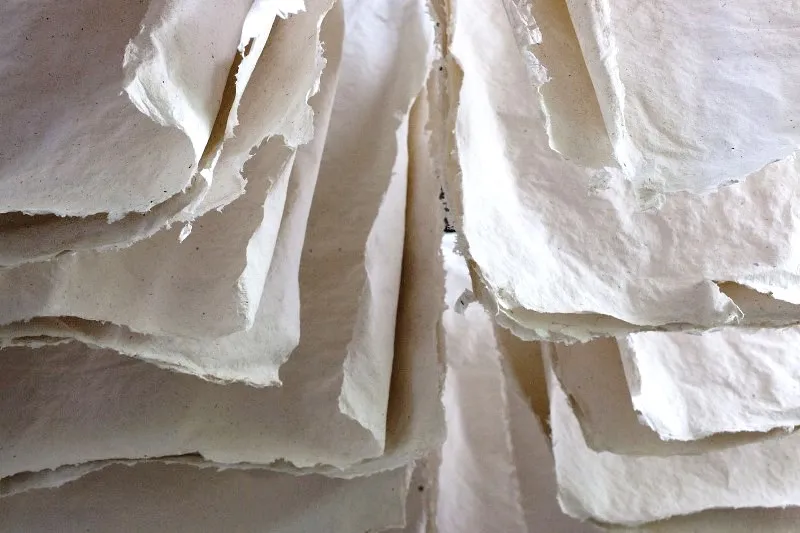
But Nisha hopes that the government will play a more proactive role in encouraging people like her to set up such enterprises in the region. “Everytime we apply for a grant or some kind of competitive application, just by virtue of having set an enterprise in the North-East, I believe, we are heroic, and deserve extra credit for that. Infrastructure wise, skill wise and just even the weather makes it very difficult to run a business. By being in the North-East, we require a special set of considerations as the funding allocated to North-East from the Centre never reaches people like us.” Nisha says ElRhino’s socially driven model of business does not allow her to retail products at gift store chains. As the paper is handmade, cost of production is high, but she says, “We wants our products to be special and exclusive.”
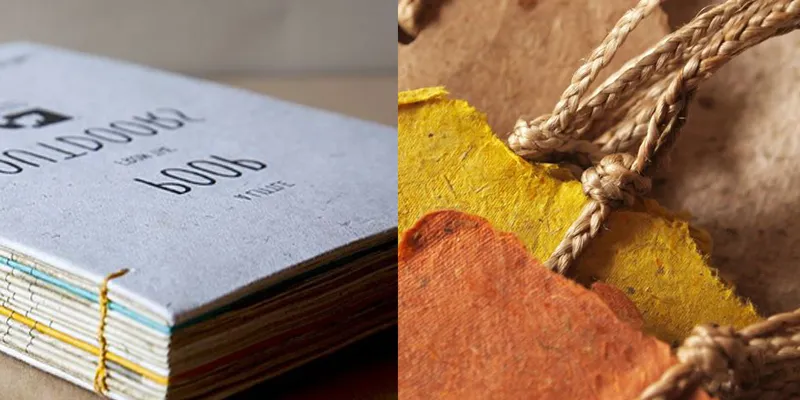
Nisha Bora says her family’s enterprise, because of its ethical nature, can never hope to compete with leading papermakers. However, her only priority is to create an aware consumer who knows exactly how their money is being used.







